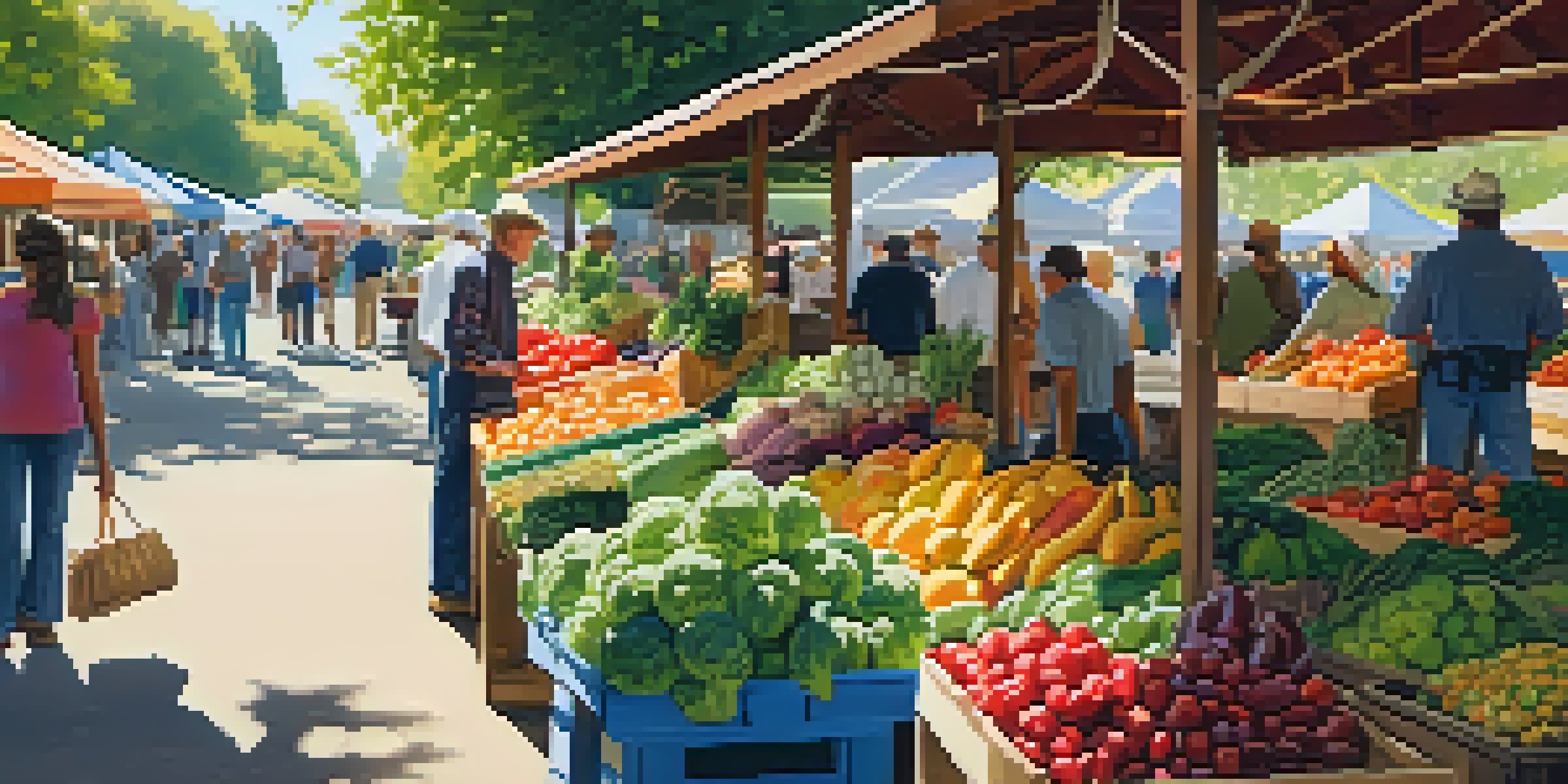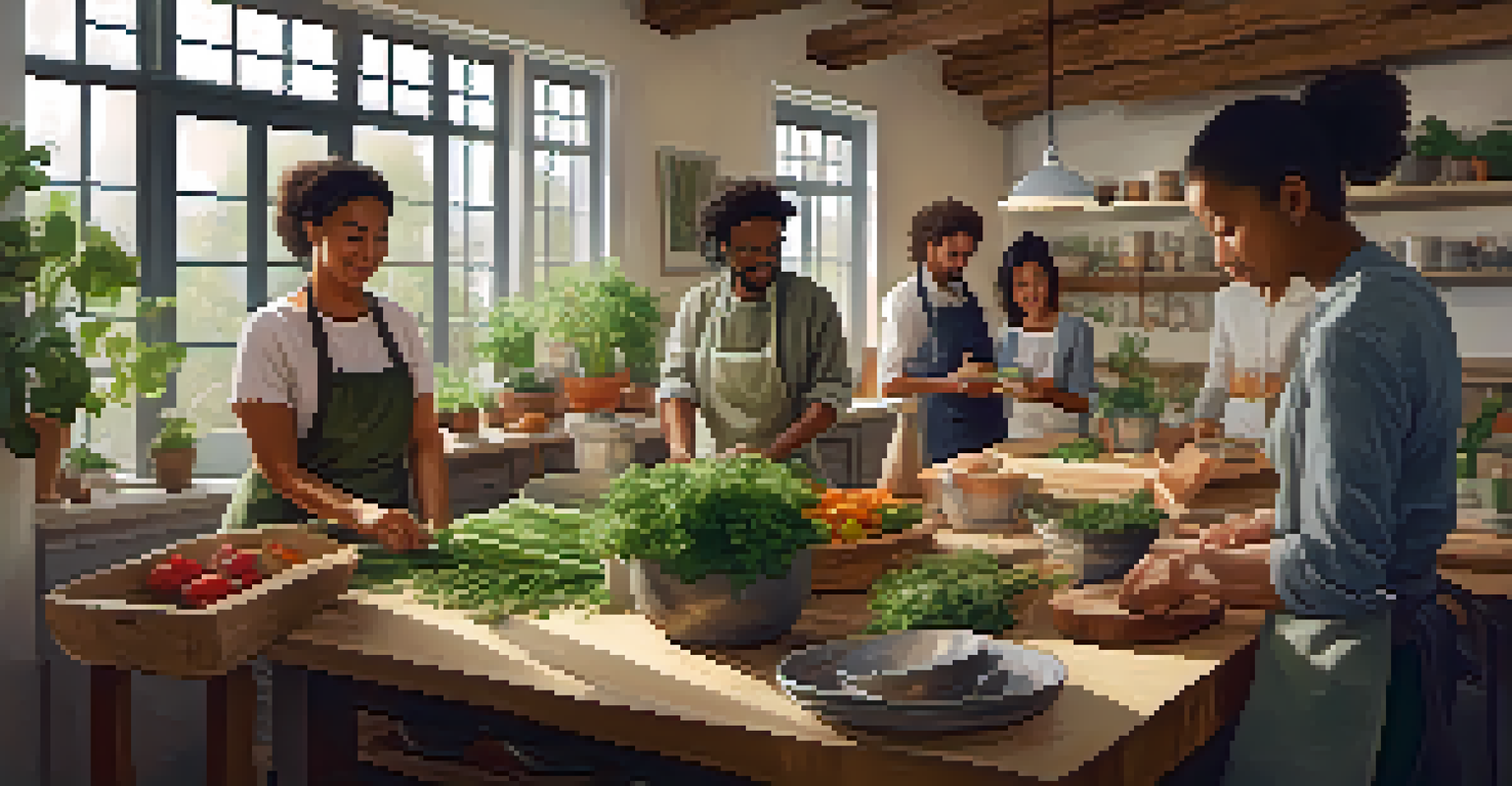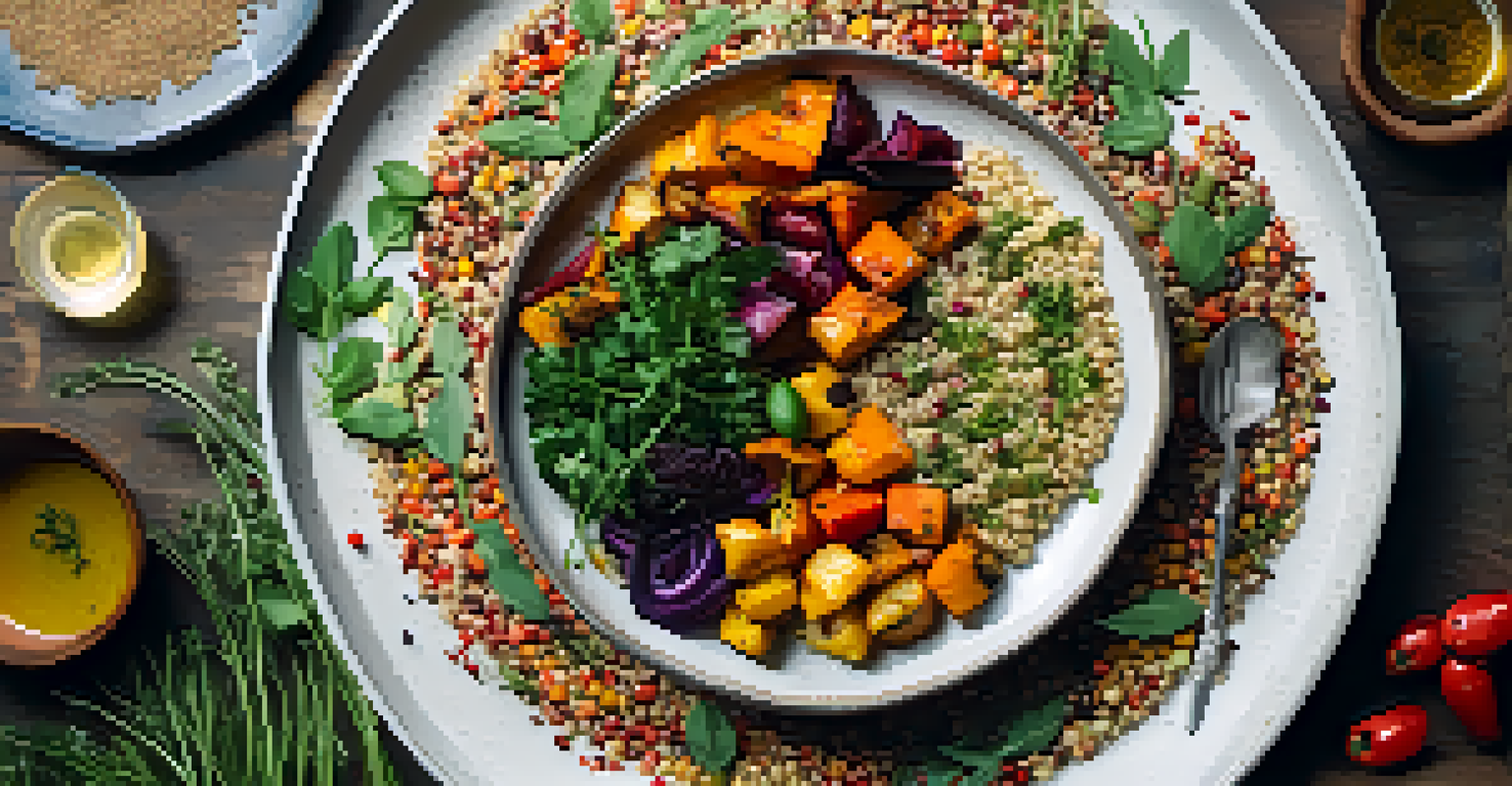Sustainable Cooking: Workshops on Eco-Friendly Practices

Understanding Sustainable Cooking and Its Importance
Sustainable cooking is more than just a trend; it’s a lifestyle choice that impacts our planet. By focusing on eco-friendly practices, we can reduce our carbon footprint and promote healthier eating habits. This approach emphasizes using local, seasonal ingredients and minimizing waste, which benefits both our health and the environment.
Sustainability is no longer about doing less harm. It's about doing more good.
Imagine preparing a meal using ingredients sourced from a nearby farm. Not only does this support local economies, but it also means fresher produce that’s packed with flavor and nutrients. Sustainable cooking encourages us to think about where our food comes from and how our choices affect the world around us.
Incorporating sustainable practices into our cooking can also lead to delicious and innovative meals. By exploring new recipes that focus on whole foods and plant-based ingredients, we can enjoy a diverse range of flavors while being kinder to the earth.
The Role of Workshops in Promoting Eco-Friendly Cooking
Workshops are a fantastic way to dive into sustainable cooking practices. They provide hands-on experience and allow participants to learn directly from experts. Whether you’re a seasoned chef or a beginner, these sessions can open your eyes to new techniques and ideas for eco-friendly cooking.

During workshops, participants often engage in activities such as meal planning, food preservation, and waste reduction strategies. These skills not only enhance cooking abilities but also foster a sense of community among like-minded individuals. It’s a wonderful opportunity to share recipes and tips that promote sustainability.
Sustainable Cooking Benefits Us All
Embracing sustainable cooking not only supports local economies and reduces our carbon footprint, but also promotes healthier eating habits.
Moreover, workshops often emphasize the importance of mindful eating and conscious shopping. By learning to read labels and choose sustainable options, participants can make informed decisions that align with their values, ultimately creating a ripple effect that benefits the environment.
Key Practices Taught in Sustainable Cooking Workshops
One of the core practices taught in sustainable cooking workshops is seasonal eating. Participants learn how to select ingredients that are in season, which not only tastes better but also reduces the need for long-distance transportation. This practice can lead to a more vibrant and varied diet, filled with fresh produce.
The best way to predict the future is to create it.
Another essential practice is composting. Workshops often include lessons on how to compost kitchen scraps, turning waste into nutrient-rich soil for gardens. This not only helps reduce landfill waste but also promotes a circular economy where waste is minimized.
Additionally, many workshops cover techniques for preserving food, such as canning or fermenting. These methods allow participants to extend the life of their ingredients, reducing spoilage and waste while creating unique flavors that can elevate everyday meals.
Building Community Through Sustainable Cooking
Sustainable cooking workshops foster a sense of community among participants. Sharing experiences and ideas creates a welcoming environment where everyone can learn from one another. This camaraderie often leads to lasting friendships and a shared commitment to eco-friendly practices.
Participants can exchange tips on local markets, seasonal recipes, and even gardening advice. Building these connections enriches the learning experience and encourages individuals to continue their sustainable cooking journey together, supporting each other along the way.
Workshops Foster Community Learning
Sustainable cooking workshops create a sense of community, allowing participants to share experiences and learn eco-friendly practices together.
Moreover, many workshops encourage participants to bring their families and friends. This inclusivity not only spreads awareness of sustainable practices but also instills these values in future generations, ensuring a broader impact on community health and environmental consciousness.
Challenges and Solutions in Sustainable Cooking
While sustainable cooking is rewarding, it does come with its challenges. One common hurdle is the perception that eco-friendly ingredients are more expensive or less accessible. However, workshops often provide strategies for budgeting and finding affordable local sources, making sustainable cooking more attainable.
Another challenge is the time commitment required for meal prep and planning. Participants may feel overwhelmed, but workshops often share time-saving tips and batch cooking techniques that simplify the process. Learning to efficiently prepare meals can turn sustainable cooking into a more enjoyable and less daunting task.
Lastly, some may struggle with adjusting their cooking habits. Workshops help by offering guidance and support, creating an encouraging atmosphere that celebrates small steps toward sustainability. By addressing these challenges, participants can build confidence in their ability to cook sustainably.
The Future of Sustainable Cooking Initiatives
As awareness of environmental issues grows, the future of sustainable cooking initiatives looks promising. More workshops are popping up across communities, driven by a desire to educate and inspire. This surge in interest indicates a collective shift toward more responsible cooking practices.
Additionally, technology is playing a significant role in promoting sustainable cooking. Online platforms and social media are helping to spread the word about workshops and eco-friendly recipes, making it easier for individuals to get involved. Virtual workshops are also becoming more popular, allowing people from different locations to participate.
Overcoming Challenges in Cooking
Common challenges in sustainable cooking can be addressed through workshops that provide strategies for budgeting, time management, and habit adjustment.
Ultimately, as more individuals embrace sustainable cooking, we can expect to see a broader cultural shift toward environmental stewardship. By participating in workshops and sharing knowledge, we can all contribute to a healthier planet and a more sustainable food system.
Finding the Right Sustainable Cooking Workshop for You
With so many sustainable cooking workshops available, finding the right one can feel overwhelming. Start by considering your goals: Are you looking to reduce waste, learn more about local ingredients, or find plant-based recipes? Identifying your objectives will help narrow down your options.
Next, check local community centers, farmers' markets, or online platforms that list workshops. Many offer trial classes, so you can get a feel for the instructor's teaching style and the workshop's content. Don’t hesitate to ask questions about the curriculum to ensure it aligns with your interests.

Finally, consider joining online forums or social media groups dedicated to sustainable cooking. These communities often share recommendations and personal experiences, helping you find workshops that others have enjoyed. Engaging with fellow enthusiasts can also enrich your learning experience.